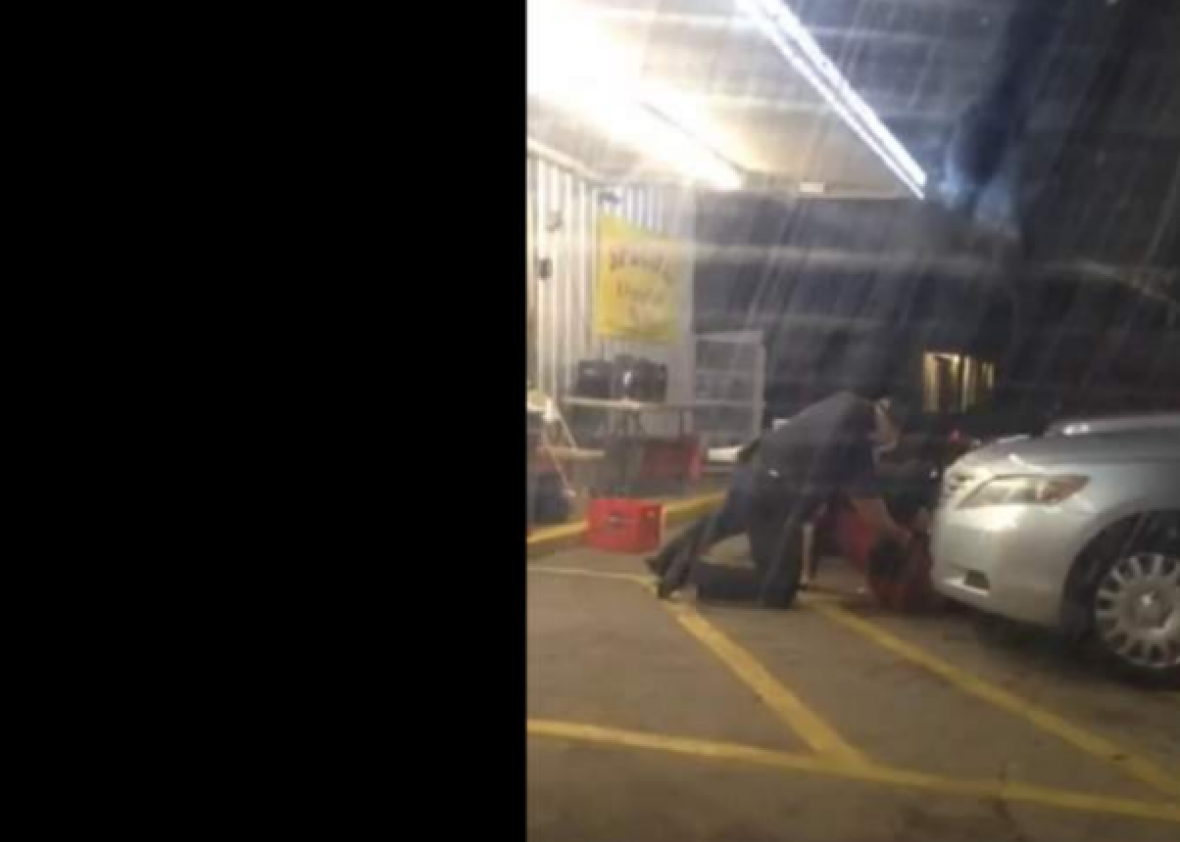Police officers in Baton Rouge, Louisiana, appear to have shot and killed a 37-year-old black man named Alton Sterling on Tuesday morning. A video of the encounter shows the officers pinning him to the ground and then at least one of them shooting him. Louisiana Democratic Gov. John Bel Edwards has announced that the U.S. Department of Justice will investigate the incident. There are many reasons to be glad that the DOJ, rather than the Baton Rouge Police Department, is leading the investigation, including the DOJ’s independence and impartiality, as well as its mandate to enforce federal civil rights laws. But here’s a less obvious advantage: Had the state left the investigation up to the local police department, Louisiana law would have given the officers 30 days after their alleged wrongdoing before speaking to investigators.
This grace period is one of several laws in the state’s Police Bill of Rights that gives law enforcement officers suspected of illegal conduct privileges far beyond those afforded to regular citizens. For instance, the Police Bill of Rights also restricts the amount of time that officers may be interrogated and provides them with the ability to demand breaks for “reasonable periods,” granting officers “rest” and the ability to tend to “personal necessities.” The Police Bill of Rights only applies to internal investigations—but in low-profile cases of wrongdoing, those are often the only investigations that occur.
While some of the special rights granted to police officers are fairly benign, others are seriously troubling for criminal justice reformers. The 30-day grace period, in particular, could allow officers suspected of misconduct to get their stories straight amongst themselves before talking to investigators—in order to present a favorable narrative with no inconsistencies. That risk would be especially strong in a case like Sterling’s, where the most important witness to the alleged crime was the victim himself.
Louisiana is not the only state to grant law enforcement officers suspected of wrongdoing privileges far beyond those available to the general population. California, Delaware, Florida, Illinois, Kentucky, Maryland, Minnesota, Nevada, New Mexico, Rhode Island, Virginia, and West Virginia have also passed laws delaying or restricting investigations into officer wrongdoing. Louisiana, Maryland, and New Mexico also provide officers with a legal mechanism to erase past misconduct from their records—a benefit certainly unavailable to most felons, who are often permanently stripped of many civil rights following a conviction. Seven states also limit civilian oversight of police misconduct; nine grant officers access to information in a case against them (like tapes of recorded interrogations and names of complainants). Moreover, 72 American cities have signed police union contracts that impose barriers to police accountability.
As a federal agency, the DOJ is not bound by these rules and should be able to investigate the Sterling shooting evenhandedly. If the Baton Rouge Police Department’s immediate reaction to the killing is any indication, the DOJ could not have swept in quickly enough. Typically, when individuals are suspected of committing a homicide with proof of the killing on camera, the suspects are jailed or questioned or arraigned. The BRPD did none of these things. Instead, it placed Sterling’s purported killers, Blane Salamoni and Howie Lake II, on paid leave.
Thanks to Check the Police and Adam Tebrugge of the American Civil Liberties Union for providing information critical to this post.
